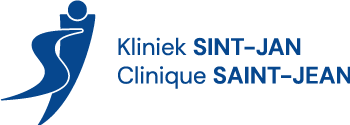
Coronary myocardial revascularization with bypass (bypass surgery) is always the most effective long-term treatment for coronary (ischemic) heart disease, and this has been proven by many scientific studies. This therapy is highly beneficial to patients with multiple instances of coronary vascular disease, including of the anterior descending artery (ADA). These same advantages apply for stenosis of the common trunk of the left coronary artery, malfunction of the left ventricle, or other cardiac diseases such as cardiac valve disease.
Older patients with significant comorbidity and different high-risk profiles require an individual approach. This is why the heart surgery department of the Brussels Heart Centre perform almost all (99%) elective off-pump coronary artery bypass surgeries without the use of an extracorporeal circulation machine (OPCAB, on-pump coronary artery bypass), with emphasis on total arterial revascularization, preferably using the bilateral mammary arteries, and without touching the aorta (“no touch Aorta”). If only the ADA is diseased, minimally-invasive heart surgery (without opening the sternum) to revascularize the ADA is indicated (MIDCAB, minimally invasive direct coronary artery bypass).
Thanks to the department’s extensive expertise, “high-risk” cardiac bypass surgery (among other things bypass surgery during acute cardiac arrest with/without cardiogenic shock, patients with very poor ventricular function and repeat operations) is performed.
The Heart surgery department is internationally renowned for OPCAB operations, and it regularly organises training sessions during which Belgian and international surgeons are trained in this technique.
Our expertise in coronary bypass surgery:
- OPCAB;
- MIDCAB;
- No touch Aorta;
- Total arterial revascularisation, preferably with BIMA;
- High-risk coronary artery bypass;
- International leaders in OPCAB training.
